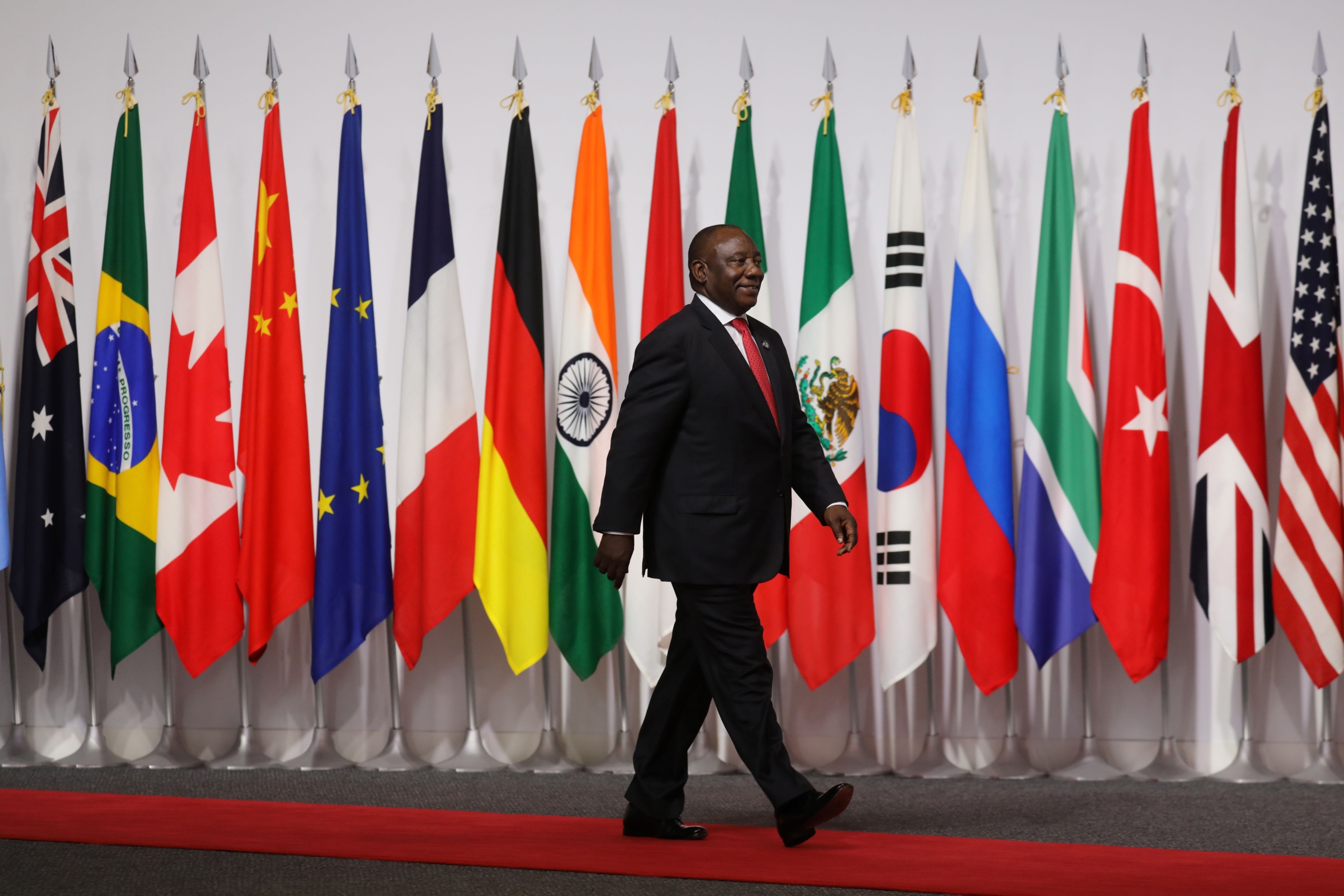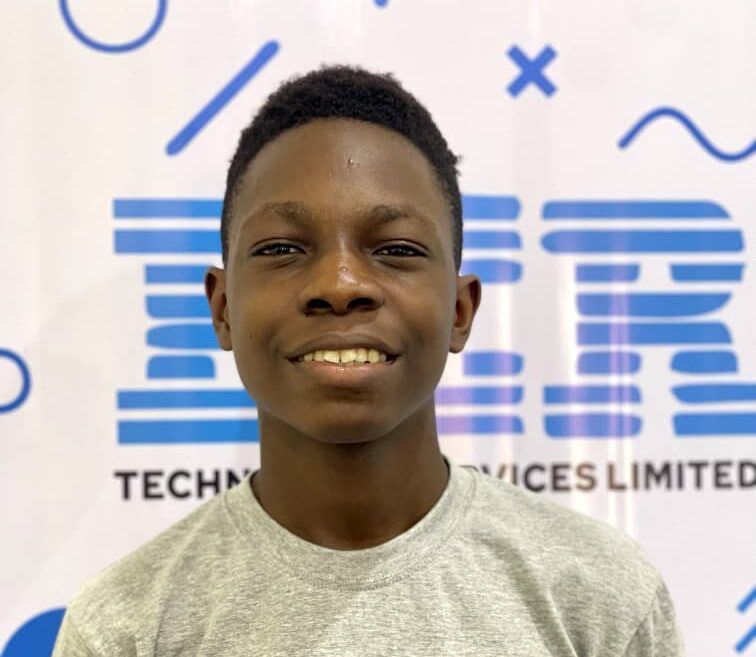Multilingual AI tutor promises to bridge educational gaps across the nation
DURBAN, South Africa — In a groundbreaking move that signals a new era for African education, South Africa has unveiled IRIS, its first artificial intelligence-powered teaching robot, designed to revolutionize learning from preschool to university level.
Launched on August 19, 2025, at the Durban Royal Golf Club by Deputy Minister of Science, Technology and Innovation Nomalungelo Gina, IRIS represents a uniquely African solution to longstanding challenges in educational access, equity, and quality.
A Homegrown Innovation Born from Classroom Struggles
IRIS is the brainchild of Thando Gumede, a 31-year-old innovator from the rural KwaZulu-Natal village of KwaMnqobokazi in Hluhluwe. The idea emerged from Gumede’s own experiences teaching mathematics and physical science at a local school, where she witnessed firsthand the educational challenges facing South African learners.
“My dream is to see IRIS in every classroom across South Africa, especially in rural and under-resourced communities where qualified teachers and learning materials are scarce,” Gumede said at the launch. The former educator, who founded BSG Technologies and was crowned Miss Tech Universe 2024-2025 in Thailand, emphasized that IRIS is an eight-year project accelerated by recent advances in AI.
Speaking the Language of Inclusion
What sets IRIS apart is its unprecedented multilingual capability. The robot can teach all subjects from Grade R through tertiary education in all 11 of South Africa’s official languages, including isiZulu, Afrikaans, Sesotho, and English. This linguistic versatility positions IRIS as a powerful tool for inclusive education in a nation where language barriers often impede learning.
Unlike text-based AI tools, IRIS responds to voice prompts, creating an interactive and engaging classroom experience. During its live demonstration, the robot captivated audiences by clearly explaining complex concepts, such as the depreciation method in accounting, complete with practical examples.
Empowering Teachers, Not Replacing Them
Education officials were quick to address concerns about AI potentially displacing human educators. Mbongiseni Mazibuko, Deputy Director-General for Curriculum Management and Delivery at the Department of Basic Education, emphasized that IRIS is designed to support teachers, not replace them.
“Technology is not our competitor; it is our collaborator,” Mazibuko stated. “IRIS will be part of the classroom ecosystem, supporting teachers, personalizing learning and bridging gaps in resource-strapped schools.”
The Department of Basic Education has committed to training teachers to work alongside the technology, ensuring educators are equipped to integrate AI tools into their teaching practice confidently.
Students Embrace the Future
The response from students has been overwhelmingly positive. Suhani Singh, a Grade 9 student from Reddam House Ballito who witnessed the demonstration, expressed her excitement: “The launch was incredible. I’ve used AI tools before, but seeing a robot teach in Zulu and English was inspiring. IRIS doesn’t replace thinking; it expands what we can do.”
Other students praised the robot’s ability to explain complex concepts in simple, understandable terms, suggesting that AI-powered education could help reduce educational inequalities that have long plagued South Africa’s system.
Women Leading the Fourth Industrial Revolution
The launch took on special significance during South Africa’s National Women’s Month. Deputy Minister Gina used the occasion to highlight the critical role of women in driving technological innovation.
“Science does not discriminate, but society sometimes does,” Gina asserted. “This is why we must actively create space for women to lead in AI, robotics and every frontier of innovation. The economy of tomorrow will be built on digital skills, and women must be at the centre of that transformation.”
Gina urged young women to pursue careers in STEM fields and take advantage of government funding opportunities for innovation.
The Road Ahead: Ambitious Goals and Challenges
Gumede has set an ambitious target of introducing IRIS to every South African classroom by the end of October 2025. To achieve this, BSG Technologies is working to secure investments and scale up manufacturing capabilities.
“IRIS does not belong to me. It belongs to all South Africans, and we need partnerships to make this possible,” Gumede emphasized. The company is currently setting up manufacturing plants and acquiring equipment to prepare for mass deployment, with a focus on making IRIS affordable, accessible, and adaptable to every learner’s needs.
The robot is fully integrated with the BSG Technologies Learning Management System, enabling real-time updates, access to curriculum-aligned content, and learner progress tracking. This integration allows teachers and administrators to monitor performance, adjust lesson plans, and maintain consistent educational standards.
A Symbol of African Innovation
While IRIS still faces the journey from prototype to widespread policy implementation, requiring strong government backing and private sector investment, its debut marks a pivotal moment in South Africa’s educational landscape.
The robot represents more than just a technological advancement—it symbolizes what African nations can achieve when they invest in homegrown talent and innovation. For a country grappling with educational disparities, particularly in mathematics, science, and technology, IRIS offers a promising pathway toward bridging the gap between privileged and under-resourced schools.
As South Africa steps boldly into this new era of AI-powered education, IRIS stands as a testament to the power of innovation born from necessity, driven by vision, and grounded in the commitment to leave no learner behind.
The nationwide deployment of IRIS will be monitored closely as South Africa leads the continent in integrating AI technology into mainstream education, potentially setting a precedent for other African nations facing similar educational challenges.




